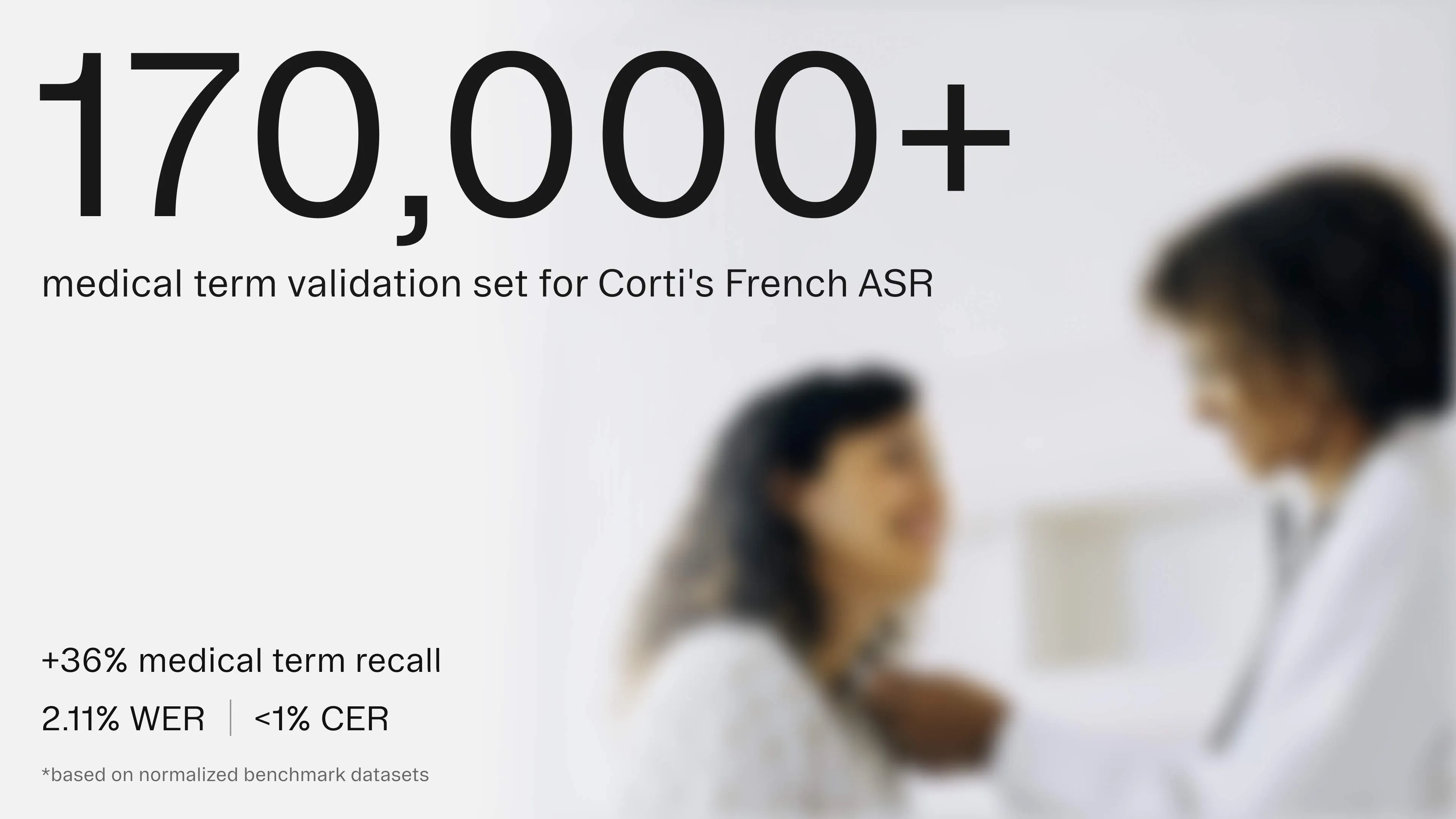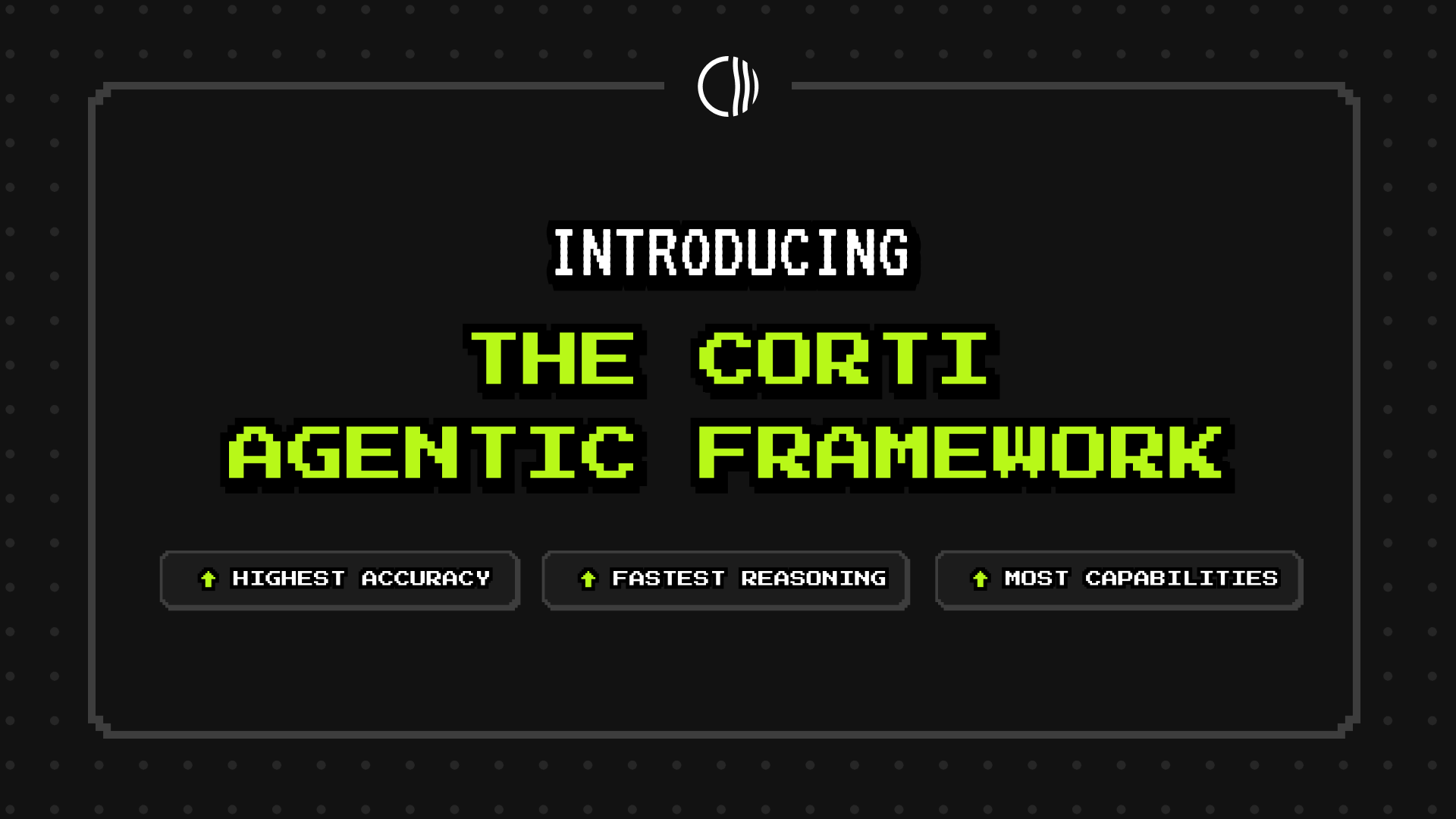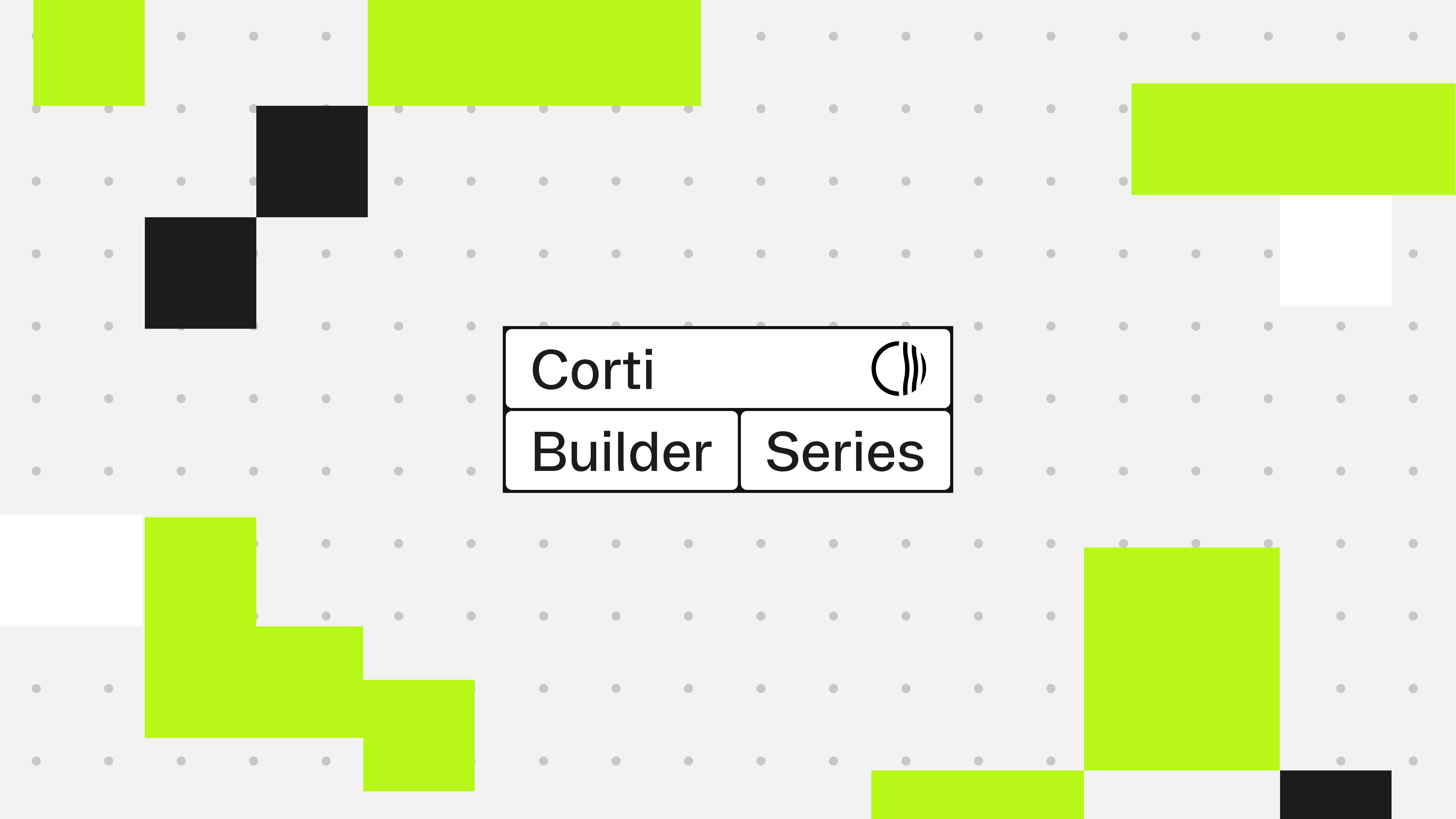“Parlez-vous médecine ?” - Corti launches the biggest automatic speech to text model for French healthcare & life-science

Medicine has its own language, and in French, it doesn’t sit still. Words fuse through liaison, endings vanish, accents wander, and half the vocabulary comes from Latin or English. For engineers building AI, that’s less melody, more minefield.
Today, Corti is launching a new Automatic Speech to Text(ASR) model for French medical use, built to understand the way clinicians actually speak and validated on a massive vocabulary of more than 170,000 medical terms, making it the biggest of its kind for the French-speaking market. Not textbook French - real hospital French - with all its abbreviations, accents, and habits. This release represents a major leap forward in accuracy, recall, and usability for francophone healthcare.
Teach AI to speak medical French
Clinical French isn’t one language. It’s a moving target that shifts from Lyon to Lille to Rennes. Liaison hides word boundaries. Regional accents bend vowels. Doctors code-switch mid-sentence. And the medical lexicon itself lives somewhere between French, Latin, and English, with terms like “œdème,” “stent,” and “check-up” coexisting in a single note. That complexity has long challenged speech to text systems. Our goal: make Corti fluent in all of it - from emergency dictations to everyday charting.
What’s new in this release
Our updated French (fr) language model now recognizes more than 170,000 medical terms, spanning everything from cardiology to psychiatry. It has been trained and validated on diverse healthcare environments to ensure robustness across dictation and ambient use cases.
The model is now rated as Premier, available now for both dictation (/transcribe) and ambient (/stream) workflows.
Performance at a glance
Medical Term Recall measures how well an AI recognizes and correctly transcribes medical terms, such as drug names, procedures, or diagnoses, in speech or text. In simple terms, it shows how good the model is at “catching” important medical words. For example, if a doctor says “myocardial infarction” and the AI writes “heart infection,” the recall drops, because it missed the exact term. A high Medical Term Recall means the AI understands medical language precisely, which is crucial for accuracy and trust in healthcare settings.
Benchmark evaluation shows significant improvements compared to the previous generation:
- +36% relative improvement in Medical Term Recall
- 2.11% Word Error Rate (WER)
- <1% Character Error Rate (CER)
Note: WER and CER benchmarks are based on normalized datasets where punctuation and case sensitivity are ignored.
These gains translate directly into clearer documentation, fewer corrections, and higher trust in automated notes.
For developers, that means less post-processing and higher model reliability out of the box.
From speech-to-text to medical dictation
A key feature turning speech to text into a true dictation solution is Commands.
Developers can define Commands that let clinicians control their workflow hands-free - inserting templates, navigating applications, automating repetitive tasks, and more.
Commands can be defined directly in the dictation configuration when calling the /transcribe API or when using Corti’s Dictation Web Component. Take a look at examples of commands, showing both configuration and server response.
Corti’s new model also includes improved punctuation.
Speech to text can create a verbatim transcript, but punctuation is essential for coherent documentation. The spokenPunctuation parameter lets users decide when punctuation should appear as symbols instead of transcribed words, turning “point” into “.” automatically.
Similarly, the formatting features ensure that structured elements, such as dates or measurements, appear the way clinicians expect them to in text, not just how they’re spoken aloud. Because in medicine, precision in language is precision in care. Formatting will go live in November in French.
A step toward universal understanding
This launch brings French into Corti’s growing family of medical-grade languages - each one designed to capture the nuances of human healthcare conversations.
From “Bonjour docteur” to “bilan cardiologique complet”, our goal is the same: to listen, to understand, and to support clinicians in giving patients their full attention.
Parlez-vous médecine ?
Now, Corti does.
Join our mission
We believe everyone should have access to medical expertise, no matter where they are.

.png)

